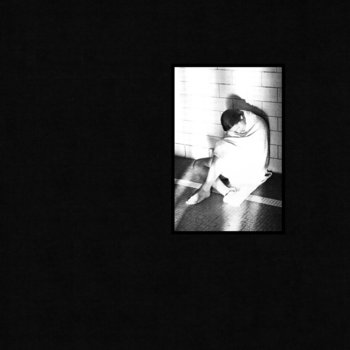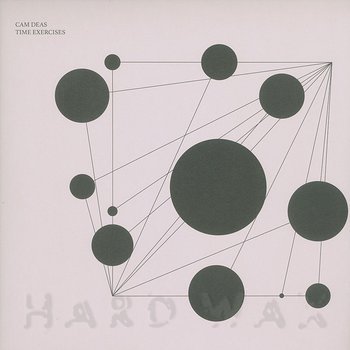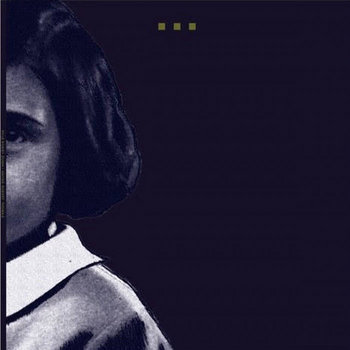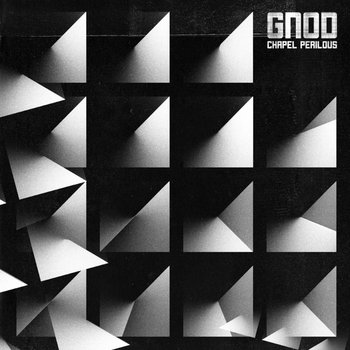News & Events

"One of electronic music's most interesting new voices." FACT
Born Again In The Voltage is an astonishing collection of electro-acoustic pieces for Buchla 200 system, cello and voice composed and produced by Caterina Barbieri at Elektronmusikstudion (SE) between 2014 and 2015.
Cello by Antonello Manzo. Images by Giovanni Brunetto. Photography by Angelo Jaroszuk Bogasz. Layout by IMPREC. Mastering by Giuseppe Ielasi.
Music produced by Caterina Barbieri between August 2014 and August 2015.
Recorded and mixed at EMS (Elektronmusikstudion) in Stockholm (SE).
Buchla 200 modular synthesizer + vocals + cello.
Cello by Antonello Mostacci.
More information can be found here.

SURE, EVERYTHING IS ENDING, but not yet. Ever since David Tibet's Current 93 sung its birth canal blues back in the early 1980s, there's been a smell of apocalypse in the air. As the American author of horror novels Thomas Ligotti put it, Tibet has over the years presented us with words and images that are "portentous in a literal and most poetic sense."* No matter how great or small, Tibet's visions has sustained a sense of urgency throughout his many, many projects and towering work. 35 years on, as dark clouds once again are gathering on the horizon, his syncretic tale of the fallen empire inside us all seem to be as pertinent as ever. Arise for bad times.
Enter Zu93, the effectively named collaboration between Tibet and the ever-changing Italian group Zu, centered around Massimo Pupillo and Luca Mai. Seven years after the collaborators first met in Rome, the most beautifully apocalyptic city of all, they can finally present Mirror Emperor, mixed and produced by Stefano Pilia. If last year's Create Christ, Sailor Boy, the startling Hypnopazūzu album Tibet made alongside Youth, the legendary producer and Killing Joke bassist, was "a transformative union," the imperial ghost music presented on Mirror Emperor marks a return to their earth, a tour amidst the ruins: Gentle guitars, weeping cellos, the occasional rumbling bass and soft percussion, are melted and gently poured into the sepulchral engine. Despite a few electric swirls or the odd metallic screech Mirror Emperor moves seamlessly and comes across as surprisingly grounded and subtle, yet anticipatory, foreboding and at times even pastoral and Arcadian. The sound of a magical chamber orchestra or Cæsar Legions? Well, Mirror Emperor does echo pivotal moments from the respective catalogues of its creators, most urgently akin to Zu's acoustic explorations on their 2014 collaboration with Eugene S. Robinson of Oxbow fame, The Left Hand Path, leading up to last year’s brilliantly metamorphic Jhator. For others the album will come as a gift from the blazing starres, more than hinting at a stripped down Current 93 of the 90s, perhaps in the same way as 2010's Baalstorm, Sing Omega or Myrninerest's 2012 album, 'Jhonn,' Uttered Babylon at times did.
"The album is the closing of a long circle for me," comments Massimo Pupillo. "I've been following David's work since the early days and count Current 93 as one of the main inspirations behind my work with Zu. For me his poetry and music is like a light in the depths of human experience, a soundtrack for one's personal descent into the unconscious fields." "Zu made something very beautiful and very powerful for me to skip into. I love this album," Tibet says. Mirror Emperor adds another chapter in his ever-expanding oblique vision: personal, dense and hallucinatory. A voice through a cloud, indeed. On Mirror Emperor, the demiurge of our demise hides in the cracks of a broken world, beneath stones and moss, among the comets, in tears and things and on "BloodBoats," as if a "cosmic melancholy" (Ligotti) is being articulated. More mourning than light. Tibet explains:
We all carry different faces, different masks, and all of them will be taken from us. We were born free, and fell through the Mirror into a UnWorld, a Mirror Empire. In this Mirror Empire we are under the Mirror Emperor, and there are MANY Bad Moons Rising. At the final curtain there is scant applause.
As the music fades out, we hear a whispered "awake." “Every time I heard this final call to awakening while working on the album, I found myself deeply moved," Pupillo says. "Awake. If this was the last word to come out of Zu, I would be a happy man."
What we're left with is a dreamlike suite, created under a murderous moon. Perhaps that is all we ever hoped for. Hey, was that the Apocalypse?
Zu93 is: David Tibet, Massimo Pupillo, Stefano Pilia, Luca Mai, Luca Tilli, Andrea Serrapiglio, Sara D’Uva.
– Tore Engelsen Espedal, March 2018
*Quoted from Thomas Ligotti's "Will You Wait For Me By the Dead Clock?," the afterword in David Tibet's collection of lyrics Sing Omega (Spheres, 2015)
More information can be found here.

The latest project of Madeline Johnston of Sister Grotto. Together with collaborator Tucker Theodore, Midwife creates dreamy songs that confront raw emotions, haunted soundscapes that get stuck in your head. Following their acclaimed 2017 debut Like Author, Like Daughter, their new Prayer Hands EP delves further, bringing more reverb-drenched anthems of loss.
More information can be found here.

Above All Dreams is Abul Mogard's beautifully absorbing new solo record for Ecstatic - his first since the Circular Forms and his popular Works [2016] compilation.
Counting six original pieces in its 66-minute wingspan, there's no mistaking that Above All Dreams is the most expansive solo release by Mogard to date. And taking into account the sets' intangible divinity and cinematic quality - the result of no less than three years diligent work - it is arguably elevated to the level of his master opus; presenting an essentially single malt modular distillation of Mogard's most intoxicating strain of hauntology.
Consistent with Mogard’s music since the sought-after VCO tapes c. 2012-2013, the allure of Above All Dreams lies in his ability to evoke and render feelings which are perhaps purposefully avoided in more academic echelons of drone music. Rather than a purist expression of physics thru maths and geometry, Mogard more complexly voices his soul, improvising on modular synth for hours, days, months and years in the same way a more conventional "band" develops group intuition.
While hands-on, the intuitive evolution of process locates a newfound freedom in his music that implies a recognition of the metaphysical or post-physical, while Mogard explicitly points to influence from the Brazilian music of Tom Zé, Antonio Carlos Jobim and Chico Buarque, whose approach to shape and density, or perceptions of light and delicacy, also go some way to explaining the ephemeral intangibility of Above All Dreams.
The results are thus best considered as the ephemera of non-verbal communications. From the gaseous bloom of "Quiet Dreams" to the opiated depth of "Where Not Even" to the starlit "Upon The Smallish Circulation," and thru the B-side’s keeling, 16 mins+ panoramas of "Above All Dreams" and "The Roof Falls," the power of Abul Mogard's dreams above all transcends sound, feeling and physics in a truly remarkable and intangible way that evades words or concrete notation. It's just incredibly special and poignant in a way that has resonated with a lot of listeners, and will continue to do so as long as people have ears and feelings.
More information can be found here.

Norman Westberg is perhaps best recognised for his truly individual approach to guitar with the band SWANS. His playing with SWANS has influenced a generation of musicians across genres. His particular approaches to that instrument, in creating both harmony and brute force, have challenged and ultimately informed a great many players.
His new solo record, After Vacation, is his first full length to come in the wake of the final SWANS outing in its current configuration. More importantly it is also the first record to see Westberg move beyond a more performative mode of single take composition.
After Vacation sees Westberg significantly expand his sonic palette. He opens up the tonal and harmonic possibilities of his instrument in unexpected and profoundly beautiful ways. His guitar, as singular source, becomes transformed through a web of outboard processes. He transforms vibrating strings completely, taking singular gesture and reshapes it through webs of delay, reverb and other treatments.
Moreover he finds a new sense of space and dimension with these recordings. After Vacation has a decidedly more topographic sense. It charts out the dark contours of places unseen but imagined. It traverses a divergent range of places in search of a ever opening compositional approach.
The results are in excess of anything Westberg has created previously. His melodic capacities come to the fore; matching his distinctly personal approach to the textural qualities of his instrument.
More information can be found here.

Time Exercises is a complex study in amorphous polymetric rhythms by Cam Deas for The Death of Rave. His first album composed solely for modular synths and computer, Cam's follow-up to the acclaimed String Studies for Luke Younger's Alter label marks a headlong tilt from acoustic to electronic spheres with a staggering effect resulting from meticulous research and process. It sounds as advanced as Xenakis or Roland Kayn superstructures, with the rhythmic displacement of FIS or Autechre, and with a grasp of slippery, mind-bending timbral dissonance comparable to Coil and Rashad Becker records.
Cam's six "Time Exercises" form both a bold break with - and an extension of - the avant, folk, blues and outernational traditions that he's worked to deconstruct and fluidly syncretise over the past decade. In the past four years he's stepped away from the guitar as a compositional tool, turning to electronic hardware in a focussed effort to consolidate myriad tunings and meters with a precision that had previously eluded him in the acoustic sphere.
Severed from the tactility and sentimentality of instrumental inflection, Cam's disembodied music plays out a thrilling dramaturgy and syntax of alien dissonance and disorienting rhythmic resolution. Harmonic shapes as densely widescreen as those in Roland Kayn's Cybernetic Music roil in unfathomable fever dream space, where massed batteries of synthetic percussion swarm like an orchestra of Cut Hands in viscous formation, and where polychromatic mentasm figures converge like cenobites laying siege to Rashad Becker’s utopia.
On Time Exercises, Cam articulates a synthetic musical language that speaks to the listener in myriad, quantum tongues awaiting to be deciphered by keen ears everywhere. It's an outstanding record for lovers of forward-looking but deeply rooted electronic music.
More information can be found here.

Collects the Universal Tongue and Small Doses Ostara 3"CDr tracks that have never been re-released. Newly mastered, the LP/CS downloads include 2 out-of-print cassette-only releases from Gold Soundz, Woolgather Visions and Mechanical Elements. Mother Universe features Matt Hill from Umberto on analog drum machine, synth and bass alongside Justin Wright's tripped-out guitar ambiance. The session was hugely inspired by Manuel Göttsching's legendary recording E2E4.
More information can be found here.

Recital is joyed to publish the newest record by Canadian composer Sarah Davachi. Currently working on her PhD in Musicology at UCLA, her trajectory has been unorthodox. Hailing from Calgary, Alberta, which, if you’ve never been there, doesn’t really scream “Avant-Garde” (Calgary is the rodeo capital of the world). From a young age, Sarah was a driven pianist (and figure-skater, although that's a story for a different time). It is important and interesting that she chose to study esoteric music; as Sarah could have easily been a cowgirl or a concert pianist had her ingrained love of synthesis and sonic phenomenology not taken the wheel.
Sarah is a considered person. I find few people that have the diligence and resolve to take their time with music… especially in a live context. I respect that about her. The first time I saw Sarah perform, I presumptuously told her that her music reminded me of my favorite Mirror albums (the exceptional project of Andrew Chalk and Christoph Heemann). Sarah was not familiar with Mirror, so the compliment was initially lost on her. Years back I was in the same situation when a review compared my music to Andrew Chalk, who was unknown to me at the time. So I felt a kinship in our magnetic drift towards unspoken and clustered beauty.
Let Night Come On Bells End The Day follows the release of her "sound-wheel" LP All My Circles Run, which examines the isolation of different instruments. Let Night Come On…, recorded mainly with a Mellotron and electronic organ, feels like a return to the nest. Burrowed in the studio, Davachi was the only performer on this album. She both splays her compositional architecture and re-contextualizes the essence of her early output. She chiseled careful and shadowed hymns; anchors of emotion.
Two pillars of this album are "Mordents," which to my ears drops hints of her love for Progressive rock music – and "Buhrstone," comparable to a sombre funeral march of piano and flutes. These two examine punctuations of early music, gently plucking melodies and movements. The three other compositions are tonal works, blowing slow jets of lapping harmonics.
Writing this description now, I find it hard to separate "At Hand" from filmmaker Paul Clipson, who made a melancholic film for this piece of Sarah’s. A fitting title for Sarah and Paul’s relationship – frequently working in orbit of each other, meticulous and tactile. I cherish this track as a memory of Paul.
This is a lovely album to fill an evening living room with. A blanket, a cup of wine, a dim bulb, a wide window.
More information can be found here.

Kyle Bobby Dunn's first physical release since 2014's And the Infinite Sadness is a warm, albeit compressed, sequel to that universally acclaimed 3xLP. In "The Searchers", the Canadian composer's sidelong composition is still set adrift in a sea of infinite nostalgia and reflections of past selves but with an ascending lightness that gleams at the contours of Dunn's most personal and affecting work. "The Searchers," named after the John Ford film, meditates on the way in which the imposing expansiveness of the American West worked upon the minds of its inhabitants who fought, lost and did terrible things to each other in their attempt to claim it. The West, like the slipstream of the course of events in a life, offers no resolution and shakes off any narrative that attempts to define it.
Wayne Robert Thomas is an Indianapolis based musician who composes drones like sculpting in wet cement, each movement turning slowly upwards while simultaneously being locked into time and space. His first appearance on vinyl, Wayne Robert Thomas's deeply felt composition "Voyevoda" utilizes processed electric guitar to fill all available space with lofty and spacious tones that lose nothing of their clarity as the float up to the rafters before settling back down to the nave. A stirring counterpoint Dunn's composition, "Voyevoda" keenly examines one's fidelity to unconquerable nostalgia.
Out May 1st. More information can be found here.

Chapel Perilous exists whereby the supernatural converges with the everyday - whatever one's definition of reality, this psychological realm serves to prove it endlessly subjective and changeable. Robert Anton Wilson may have laid claim to the modern use of this phrase - as in his 1977 tome Cosmic Trigger - yet there can be few musical outfits in the here and now more worthy of carrying on its tradition than Gnod. In more than a decade on the planet, this singular Salford-birthed entity have married intrepid musical exploration with psychic fearlessness - not to mention a tendency to leave any tag or bracket one attempts to place on them utterly redundant.
In a sense, the latest adventure bearing this title evolved both from the lengthy European tour that the band embarked upon in the wake of their stripped-down and paint-stripping 2017 opus Just Say No The Psycho Right-Wing Capitalist Fascist Industrial Death Machine. Yet recording in Supernova studio in Eindhoven under the auspices of Bob De Wit, the band found themselves free not only to lay down two tumultuous tracks that they had been honing and hammering into shape on the road - the pulverizing fifteen-minute opener "Donovan’s Daughters" and the bracingly brutal "Uncle Frank Says Turn It Down" - but to sculpt more abstract material, utilizing dubbed-out repetition, furious riff-driven rancour, bleak soundscapes and off-the-map experimentation to create an intimidating and invigorating tableau of dystopian dread and unflinching intensity.
Always working purely on their own instincts and co-ordinates, Gnod's pathway into unchartered territory continues to move firmly on with nary a care for the sanity of anyone in their surroundings. Chapel Perilous is a still more indomitable chapter in a transcendental travelogue from an iconoclastic institution that only gathers momentum with the passing of time. Wherever Gnod go in 2018 and beyond, expect reality to be reinvented anew, whatever the consequences.
Out May 4, 2018. More information can be found here.

